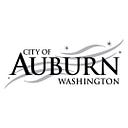Little Library, Big Impact: How Little Free Libraries Enrich Our Community

By Angee Pogosian, Communications and Multimedia Intern
Ever seen a library on a stilt? A propped-up wooden box, nailed together with love and attention, and brightly colored? Sometimes, they dominate the landscape; sometimes they’re tucked away like a secret.
If you happen upon it, swing open its little glass-paned door and marvel at what’s inside — books, from nonfiction to children’s stories, fantasy novels, poetry, and steamy fantasy. The purpose is simple: anyone is welcome: to leave a book as donation or grab one to keep.
These mini title-sharing boxes are known far and wide as little free libraries. And they’re all over the city you live in.
“It is wonderful to see grassroot initiatives that champion [equity] efforts and strengthen our communities,” said King County Library System Executive Director Heidi Daniel.
Little free libraries reached Auburn in 2019 after the City partnered with the King County Library System and the Sons of Italy organization to promote equitable book access, literacy, and community engagement. Since then, eight registered little free libraries now stand across Auburn’s parks and neighborhoods.

Anyone can build these book-exchanging boxes, using materials from home, and creativity from their imagination — the magic happens once it all comes together. Wesley Lippard should know — at just 18 years old, he took on the initiative for his Eagle Scout project in 2019. “I think it’s a nice way to share with people,” he said. “Even if you don’t directly see them or know who they are.”
After receiving the Homeowners Association’s approval, Wesley researched what materials and blueprints he’d need for building the little free libraries. “I’m not a very handy person,” he admitted, but with the carpentry background of his grandfather and family friend, together they constructed the small bookshelf on a post. “We dug up a little hole, stuck the library in, and filled it with cement,” he explained, which stands to this day in his childhood neighborhood of Lakeland Hills.
“It is wonderful to see grassroots initiatives that champion [equity] efforts and strengthen our communities.”
Wesley successfully received his Eagle Scout rank, which is the highest honor in the Boys Scout program, all while creating a mini community space. He is continuing his love for learning by now studying art history at Arizona State University. “Reading is a form of art,” he reminisced, “a way of empathizing, putting yourself in someone else’s perspective, and I think that’s powerful.” Though Wesley and his family no longer live in Lakeland, his legacy on fostering knowledge-exchange continues between today’s neighbors.

Along with cultivating connections, little free libraries confront equity barriers to reading, by bringing a library close to home. While strolling her Lakeland Hills neighborhood, 69-year-old resident Debbie regularly passes a little free library to pick up books or stock them with donations. “I never know what I’m going to find,” she exclaims. “It’s like a treasure hunt!” As a grandmother to 17 children and a retired preschool teacher, Debbie has found books that helped her create resources and curricula for other educators. She’s even found cookbooks that inspired her to try preparing new dishes. “I love that I can both share and find something,” she said. “It’s just great how people contribute.”
Little free library’s impact on Auburn is strong, but it also extends beyond our city. There are over 150,000 public bookcases across 120 countries. They have facilitated the exchange of over 54 million books between communities worldwide, including in underserved areas.

And it’s not just Auburn — The little free library’s story was born in the small city of Hudson, Wisconsin. There, a schoolboy named Todd Bol earned an “E” in reading while grappling with dyslexia. But with the support of his mother, Bol grew to love reading. Decades later, in 2009, her death inspired a creative gesture of love in her son. At age 53, out of wood from his old garage door, Bol created the first little free library in his neighborhood. His idea became so popular, Bol built more mini public libraries around his area, which quickly spread to regions beyond. Thus, Little Free Library was founded: a grassroots non- profit organization, promoting reading accessibility and community connectedness.
As you walk around your neighborhood, search for a little free library. Grasp at this opportunity for learning, giving, and discovering with your neighbors. And if you don’t see a book-exchange box nearby, who knows! Maybe you can build one and leave a trace in your community too.
“The perks of little free libraries are endless,” said Maddie Ralstin, an Equity, Engagement, & Outreach Consultant for the City of Auburn’s Office of Equity. “By offering our most vulnerable communities’ access to books and learning materials, we’re helping ensure imaginations grow unencumbered — and all for the price of opening a small wooden door.”
